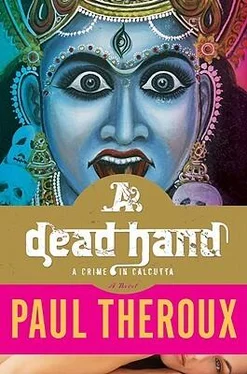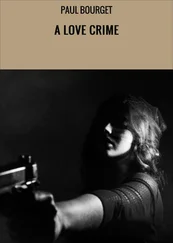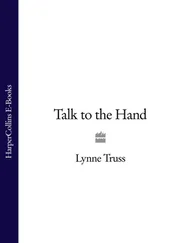Another contained the image
…the muted lisp
Of morning's tongue pushes against the sky.
"What do you think?"
"What do I think? Coruscating."
She laughed. She said she wanted to loan me a book by a Bengal novelist. "Pop by my flat. You must read Sarat Chandra Chatterji."
Though Howard had told me she lived with her parents, I took this to mean that the flat was hers. It might have been. On a side street near a mosque in Shobhabazar in north Calcutta, it was four flights up on a landing that faced the minarets and a building draped with drying laundry. The dark staircase smelled of disinfectant and cooking. I was breathless from the climb when I knocked. An old woman opened the door, her harassed face puffy with the heat, a servant judging from the way she was dressed, wrapped in a plain cotton sari and barefoot.
"Won't be a minute!" Parvati called from an adjacent room that was blocked by a folding screen.
"Chai? Pani?" the old woman asked as she plucked at her gauzy sari.
"I'm fine," I said, and clarified it by gesturing with my hands. An offering of water in Calcutta had sinister implications for me. The very word "water" was like poison.
An inner door clicked open. I expected Parvati, but from the reaction of the servant, compact, cringing, I took the woman approaching to be her mother. She straightened to appraise me. She was not old, but I saw no resemblance to Parvati. She was darker, heavier, flatfooted in gold sandals, wearing rings on her toes, and she twisted her wrist bangles as she frowned at me. She was clearly disappointed, as though I was hardly human, a peculiar animal, a pest.
"You are alone?"
What did that mean? I was still standing. I said, "Yes."
"Your employment is American consulate?"
"Not exactly." What had Parvati told her, and why wasn't she here to help me? "I do a little writing. I was giving lectures at various places around Calcutta, sponsored by the consulate. Maybe that's what you were thinking of."
She waggled her head. "Please sit. You won't have tea?"
Helpless, not knowing how to deal with the silence in the shadowy room, I said, "Thanks. I think I will."
"Ragini, chai," she said to the servant, who stood to the side, still cringing. And seating herself across from me, she said, "And how are you knowing Parvati?"
"Through her poetry, of course."
"Tcha." This was less a word than a way of sucking her teeth.
"And her classical dancing."
"Tcha."
Behind me, I saw as a flash in a mirror, the outer door opened — a sight of laundry and minarets — and a man came in, obviously fresh from work and heat; a crease of disturbance on his face made him seem like an escapee. He glanced at me with undisguised alarm and disapproval, as if he'd encountered an intruder. His leather briefcase was bulgy and bruised, and although the day was hot he wore a dark wool jacket and a shirt and tie. He unbuttoned his jacket but did not remove it. His heavy clothes seemed like armor and gave him an air of pugnacity, as though he were dressed for combat. Not taking his coat off seemed hostile.
The woman spoke to him in Bengali. I caught the word "Parvati" and guessed at what she might be saying.
This man (her father, I assumed) could have been my age, yet in his stern, heavy-faced way, his brows and his hooked beak making him look owlish, he seemed much older — out of shape, fattish, with delicate hands; fleshy, with the air of a clerk in baggy pants and thick-soled shoes. I thought how in travel, especially in India, I met people from an earlier time, another era.
"You're the chap from the consulate?"
I smiled at his wife, hoping she'd set him straight. But she stared at me and said nothing.
"No. As I said," and smiled at the woman, "I'm just passing through."
I wanted to say And don't worry, I don't want to marry your daughter.
We sat, the three of us, in three chairs, in hot, silent formality, as the lilting voice began in the mosque's crackling loudspeaker, calling the faithful to prayer.
The man looked unloved but like someone who'd always been obeyed. Certain Indian men seemed to me like this. No matter how accomplished and successful, they remained like big hairy boys, ungrateful and tantrum-prone and spoiled.
The servant Ragini set the teacups down on side tables as the man muttered to her. She cringed and turned that reflex into a bow.
It was as though I'd come for an interview, and before any questions were asked, the interviewer had written me off as unsuitable. They saw me as a bad man, not just a thief but a thief from another world. I had traveled all over, but I could not remember a time when I'd been seen this way, implausible and tainted.
"Kinda hot," I said. The man glanced away from me; the woman rocked her body a little. The call to prayer was still crackling. "Monsoon's coming."
They were like sentinels. Their silence made me stupid. Worse than my coming to ask a favor, or to see Parvati, I was here to steal from them, to rob them of the only thing that had value in this place, not their daughter but their daughter's honor; to steal her virginity and leave her bleeding.
"Sorry to intrude," I said.
They sipped their tea, which was more offensive to me than replying.
I was intruding on them. I had no business there. Had I been a young Bengali man, a potential suitor, they would have been chatty. But I was all wrong, an alien.
"Which part of America?" the woman asked.
"New York."
"Crime," the woman said with satisfaction, her earrings trembling. "So dirty. So dangerous."
The man waggled his head in agreement, as we sat in the heat, breathing diesel fumes and listening to the roar from the street and the howl from the mosque.
I did not belong in the privacies of Calcutta, only in the big public stew with the mob that swallowed everyone up. No one belonged here. How had Mrs. Unger managed? But she was afraid of mobs.
"My husband has been to America. Punch?"
"For a conference. Workshops."
His name was Punch? I said, "Parvati tells me you teach at the university."
"Indeed," the man said, and no more.
"What do you teach?"
"Faculty of English studies."
"My favorite subject. I've done some teaching myself. What period?"
"Seventeenth century. Recusant poets and dissenters. Thomas More to Ben Jonson."
"You write too?"
"For the journals." Jarnels.
I had nothing to offer. Recusant poets? I was a barbarian, here to steal his daughter. And now, at last, I heard her.
"Sorry to keep you waiting," she said. "I see you met Daddy and Mummy. I was dealing with a computer meltdown."
"I was just about to leave," I said. "If you've got the book."
"Oh, please, don't go. Have some more tea."
"If he has business elsewhere, let him go," her father said.
And so Parvati handed me the book, and I thanked them and left, descending the stairs to lose myself in the anonymity of an alien in the streets, where I belonged.
The effect of that brief stop at Parvati's — never to be repeated — was that I wanted to leave India. It was all very well to be a sightseer here, but their reaction told me that I was unwelcome. I knew that I could exist with other writers and tourists in the superficial world of Calcutta, struggling on the surface with the other short-timers and sensationalists. I didn't know the language, as Howard did, but I was so infatuated as to be lost with Mrs. Unger.
And I had the dead hand. That was the only thing that kept me here. It represented the innermost India, a pathetic trophy and the key to a mystery I had not yet solved. If I could have taken it with me, I would have gone. But I had to stay here and protect it, to attach it to its owner, whoever that might be.
Читать дальше












